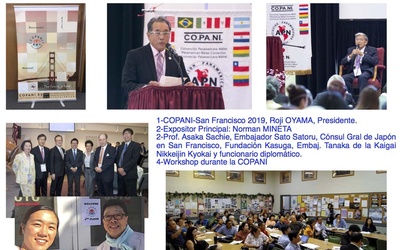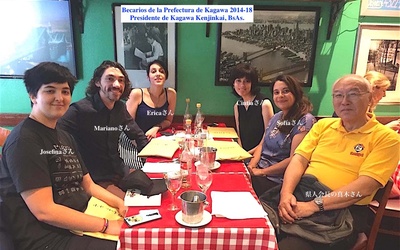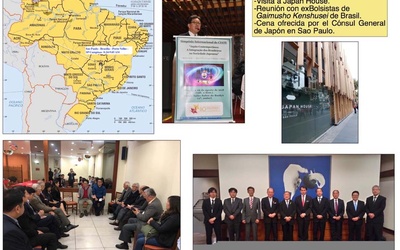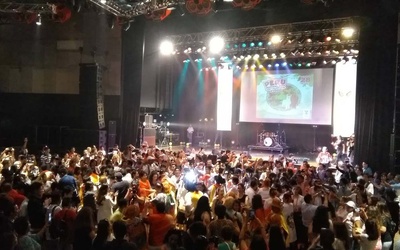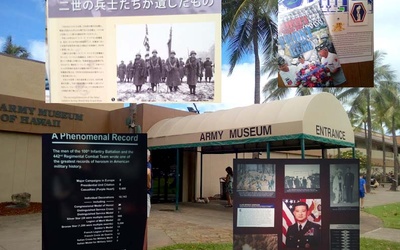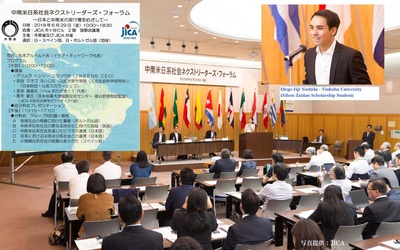The Nikkei of Latin America and Latino Nikkei
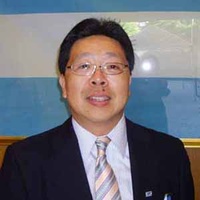
Lic. Alberto Matsumoto examines the many different aspects of the Nikkei in Japan, from migration politics regarding the labor market for immigrants to acculturation with Japanese language and customs by way of primary and higher education. He analyzes the internal experiences of Latino Nikkei in their country of origin, including their identity and personal, cultural, and social coexistence in the changing context of globalization.
Stories from this series
2021 Paraguay COPANI ~ My wish - Part 1
April 14, 2020 • Alberto J. Matsumoto
The first COPANI (Convención Panamericana Nikkei) was held in Mexico City in 1981, and the 20th was held in San Francisco last September. The contribution of one of the founders, Carlos Kasuga, a Mexican second generation Japanese businessman, cannot be ignored in the background of COPANI's continued existence.1 This was the fourth time COPANI was held in North America, following the Los Angeles convention in 1989, the New York convention in 2001, and the Vancouver convention in 2005, and the …
The role of the second generation and beyond in the "Kenjinkai" and building bridges into the future
April 3, 2020 • Alberto J. Matsumoto
In recent years, the form and role of "kenjinkai," which was a tool for communication between Japanese immigrants in South America and their prefectures of origin, has changed. Before the war, it was a place where people from the same hometown gathered to exchange limited information, and was an institution that acted as a bridge to contact families left behind. After the war, the number of kenjinkai operated with subsidies from each prefecture increased, and especially from the 1970s to …
"Collaboradores Conference 2018" and visit to local Japanese communities in Brazil
March 16, 2020 • Alberto J. Matsumoto
At the end of August 2018, I had the opportunity to attend an international symposium called "Conference of Collaborators: Contemporary Japan - Integration of Brazilians in Japan into Japanese Society" held in São Paulo, Brazil, at the invitation of the Ministry of Health, Labor and Welfare. I also took the opportunity to visit local Japanese communities. The "Collaboradores Conference" is a meeting organized annually by CIATE 1 (Center for Information and Assistance for Brazilian Overseas Workers), which was established by …
Japan in the Heisei Era and Japanese South American Workers Who Have Established Their Lives
Feb. 24, 2020 • Alberto J. Matsumoto
In 2019, the era name "Heisei" ended in Japan and "Reiwa" began. The 31-year Heisei era almost overlaps with the history of Japanese workers from South America coming to Japan. During the bubble period in the late 1980s, in order to solve the serious labor shortage problem in the manufacturing industry, the government revised the immigration law to allow second and third generation Japanese from South America and their spouses to work in Japan without restrictions. At that time, the …
"GANNENMONO" and "Japanese Legacy" in Hawaii
Feb. 7, 2020 • Alberto J. Matsumoto
In June 2018, a major event in the history of Japanese overseas migration was held in Honolulu, Hawaii. It was the "Gannenmono" ceremony celebrating the 150th anniversary of Japanese immigration to Hawaii, and was attended by Prince and Princess Akishino from Japan, and by the government, including former Self-Defense Forces officer and Vice-Minister for Foreign Affairs Sato Masahisa, and JICA President Kitaoka Shinichi. Hawaii representatives included Governor Ige, former Governor Ariyoshi, Honolulu Mayor Amemiya, Japan-U.S. Council Chairwoman Irene Hirano Inouye …
The Significance and Effects of the Japanese American Next Generation Leaders Forum
Sept. 18, 2019 • Alberto J. Matsumoto
For the past few years, the Japanese Ministry of Foreign Affairs has been inviting the next generation of Japanese leaders from Latin America. I have been involved in this project for the past six years at the request of the Ministry of Foreign Affairs' Latin America and Caribbean Affairs Bureau. Despite the tight schedule, the invited Japanese people have the opportunity to meet with relevant organizations and sometimes even the Prime Minister. This is because the Japanese government hopes that …

